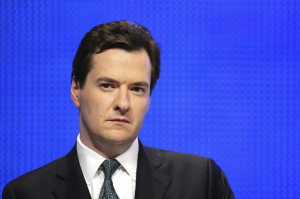A spending review announced by Chancellor of the Exchequer George Osborne (aka Jeffrey) has put civil servants, jobseekers and pensioners who have retired abroad in the firing line.
Cutting £11.5 billion in spending, the chancellor said balancing the nation’s books involved “difficult decisions”, adding: “There never was an easy way to bring spending under control.”
Labour Shadow Chancellor Ed Balls said the new round of cuts represented a “comprehensive failure” of the Chancellor’s economic strategy. Mr Balls said: “This out of touch Chancellor has failed on living standards, growth and the deficit and families and businesses are paying the price for his failure.”
But Mr Osborne insisted his measures, which only spared schools, the NHS, overseas aid and the intelligence services, were necessary and fair. Mr Osborne gave further details of his planned welfare cap, which will come into force in April 2015 – a month before the next general election. Housing benefit, tax credits, disability benefits and pensioner benefits will all be included, although the state pension will not.
The Chancellor said public sector pay rises will be limited to an average of up to one per cent for 2015-16 and automatic progression pay and re-grading were being scrapped. He said: “Progression pay can at best be described as antiquated; at worst, it’s deeply unfair to other parts of the public sector who don’t get it and to the private sector who have to pay for it (..) So we will end automatic progression pay in the Civil Service by 2015-16. And we are working to remove automatic pay rises simply for time served in our schools, NHS, prisons and police.”
The move prompted union outrage. Brian Strutton, national officer of the GMB, said: “This is just another unpleasant dig at public sector workers who have already been made scapegoats for problems they had nothing to do with.”
Mr Osborne announced that the council tax freeze, due to come to an end next April, would be extended for the next two years. He said that would mean nearly £100 off the average council tax bill for families. But he warned that local councils would have to make “the kind of sacrifices central government is making”. He said the local government resource budget would be reduced by 10 per cent in 2015-16, but claimed that when changes affecting local government are taken into account including local income and other central government funding, local government spending would be reduced by around two per cent. Sir Merrick Cockell, chairman of the Local Government Association, said the cut would “stretch essential services to breaking point in many areas”.
Scotland, Wales and Northern Ireland do not escape the squeeze with all three required to find savings of 2%. Mr Osborne also said that the Ministry of Defence would face further cuts to its civilian workforce as its budget was maintained in cash terms at £24 billion – representing a real terms cut. But the equipment budget will rise by 1% per annum – as previously promised – and there will be no further reductions in military personnel.
The intelligence services – MI5, MI6 and GCHQ – emerged among the winners with a 3.4% increase in their annual budget. But there will be cuts of 6% at the Home Office, 8% at the Foreign Office and 7% at the Department for Culture, Media and Sport – although funding for elite sports will be protected.
Winter fuel payments for expat pensioners who have retired to sunnier climes will be linked to a “temperature test” from autumn 2015, the Chancellor confirmed. “People in hot countries will no longer get it. It is, after all, a payment for winter fuel,” he said.
A “limit on the nation’s credit card” will be brought in, he said, adding: “We will act to ensure that we will stop the cost of paying the Winter Fuel Payments made to those who live abroad rising in a way that no one ever intended. “Paying out even more money to people from all nationalities who may have worked in this country years ago but no longer live here is not a fair use of the nation’s cash.”
Mr Osborne also announced that jobseekers will be required to come to the Jobcentre every week rather than once a fortnight and the introduction of a new seven day wait before people can claim benefits. He went on: “From now on, if claimants don’t speak English, they will have to attend language courses until they do. This is a reasonable requirement in this country.”
The Chancellor promised investment in education and accelerated school reform, with the overall budget of the Education Department increasing and schools spending protected in real terms. To transfer power – and money – from town halls and central bureaucracy to schools he said grants to councils and spending on central agencies were being reduced while cash going to schools will go up.
He also announced schools spending will be allocated in a “fairer way” so the lowest funded local authorities will receive an increase in their per pupil funding through a new national funding formula. He said the pupil premium, introduced “to make sure we are fair to children from low income backgrounds”, will be protected in real terms “so every poor child will have more cash spent on their future than ever before”. Mr Osborne also announced funding for an unprecedented increase in the number of Free Schools – 180 in 2015-16.
The Conservatives say they inherited the biggest peacetime deficit from Labour when they came to power in 2010 and have cut it by a third. Their favourite line of attack is that Labour can never be trusted to manage the economy again.
But Labour accuses Prime Minister David Cameron’s government of pushing through too many cuts too quickly, a tactic it says is stifling growth and delaying a recovery.
It believes in more stimulus, but has been reluctant to promise to borrow more for fear of being branded irresponsible. Labour reminded Osborne of his 2010 pledge to eliminate the budget deficit by 2015.
“The Chancellor (Osborne) spoke for over 50 minutes today, but not once did he mention the real reason for this spending review – his comprehensive failure on living standards, growth and on the deficit,” said Ed Balls, Labour’s finance spokesman.
“Surely the Chancellor should be taking bold action now to boost growth this year and next.”
Economists said further pain lay ahead as the government sought to eliminate the deficit by 2017/18. “While today’s cuts will be very painful they’re only a precursor to steeper cuts after the 2015 election,” said Matthew Whittaker at the Resolution Foundation, a thinktank which focuses on issues facing lower-income Britons.









